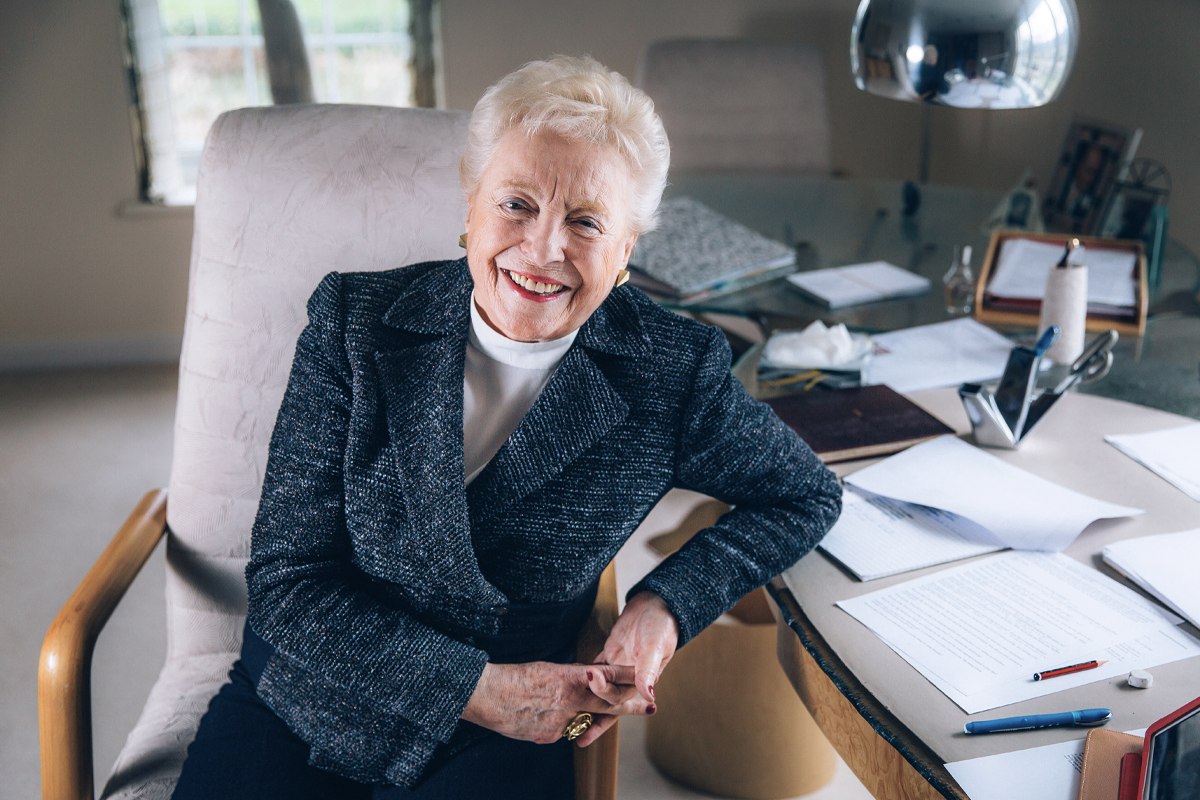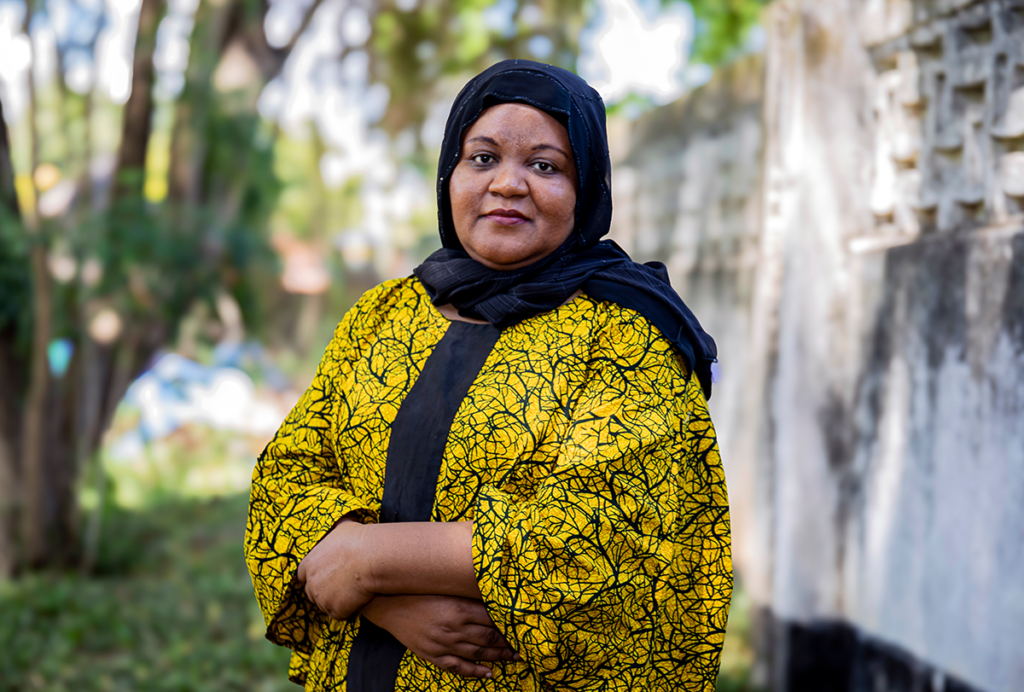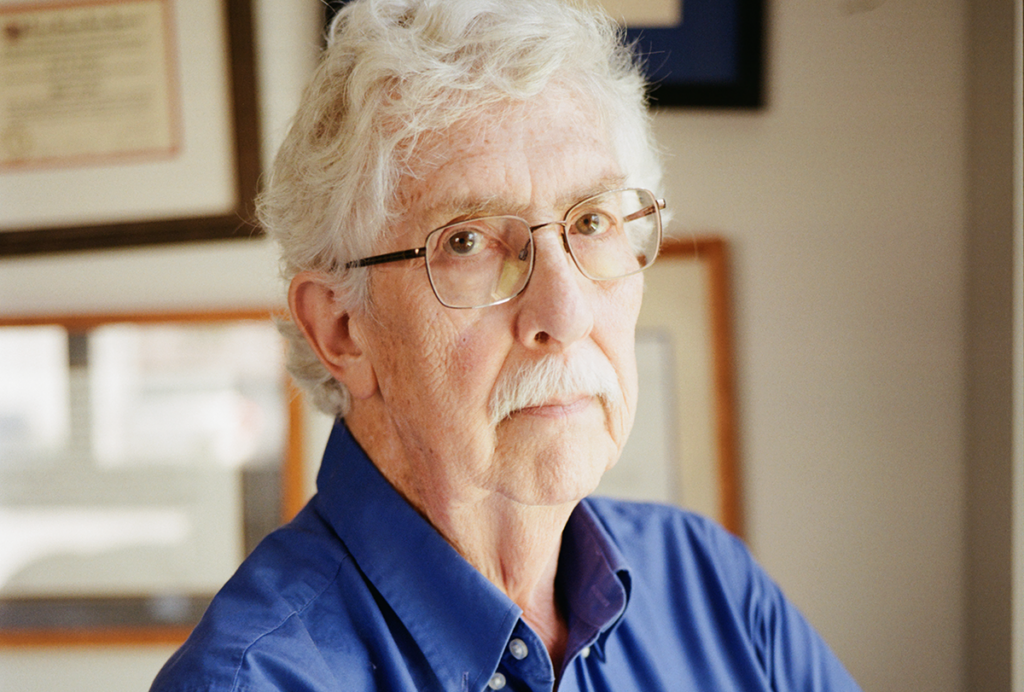In 1984, Stephanie “Steve” Shirley and her husband were preparing to purchase a small cottage in Oxfordshire, England. It was not far from Borocourt Hospital, a psychiatric institution where their autistic son Giles lived, and Shirley hoped to bring him to the cottage on weekends.
But then they noticed ulcers in Giles’ mouth, and they learned the hospital staff knew Giles “was drinking from the toilet for years and had not thought to mention it,” Shirley wrote in her 2012 memoir, “Let It Go: My Extraordinary Story—From Refugee to Entrepreneur to Philanthropist.” It was then that she and her husband understood they “could no longer meekly accept the situation.”
They moved Giles into the cottage and hired a full-time caregiver. The cottage would develop into Autism at Kingwood, a supportive living community for autistic adults. (Borocourt Hospital closed in 1993.) For Shirley, who died after a brief illness on 9 August at age 91, it was the first of her charitable endeavors around autism—she would later found Autistica—and marked the beginning of her philanthropy for Britain’s autistic community.
“In the U.K., Steve was a major figure in driving change around autism,” says Simon Baron-Cohen, director of the Autism Research Centre at the University of Cambridge. Shirley funded two of the center’s projects, and she and Baron-Cohen kept in touch for years.
Her decision to build the home Giles needed was also typical of her problem-solving abilities and outspoken nature. “She was always very, very curious and also willing to challenge what you were doing,” recalls James Cusack, chief executive officer of the charity organization Autistica.
S
hirley was born Vera Buchthal on 16 September 1933 in Dortmund, Germany, to Margaret and Arnold Buchthal. Her father was Jewish, and the family fled Germany and the Holocaust, settling in Vienna. But when the Nazis arrived there, too, Vera and her older sister Renate were put on a Kindertransport train to England and were raised by foster parents Guy and Ruby Smith.“Without my being fully aware of what was going on or why, a large number of good-natured strangers took it upon themselves to save my life,” she recalled in her memoir. “A simple resolution took root deep in my heart: I had to make sure that mine was a life that had been worth saving.”
Both her birth parents survived the war, but their marriage did not. Her father returned to Germany, and she periodically visited him there. Her mother relocated to England, though Vera mostly continued to live with her foster parents, whom she called “Auntie” and “Uncle.”
Shirley adopted the name Stephanie Brook at 18. She did not attend university but earned a math degree through night classes at Sir John Cass Technical College and a master’s degree in computer logic at Birkbeck College. She worked at the Post Office Research Station, where she helped create the Electronic Random Number Indicator Equipment, known as ERNIE, for a national lottery.
In 1959, Shirley married Derek Shirley, an engineer. She did not want to be “an underling in a male-dominated company,” she wrote in her memoir, and she founded Freelance Programmers in her home in 1962. Her husband suggested she use the name Steve in professional correspondence, reasoning that a male name would be better received by potential clients. He was right, and she held onto the nickname. “We all knew her always as Steve,” says Adam Feinstein, who had an editorial role in the now-defunct Welsh charity Autism Cymru and authored three books on autism with Shirley’s support.
Giles was born in 1963. He lagged on developmental milestones and was diagnosed with autism at age 3. Shirley described this period as feeling like the walls were closing in on her, says Feinstein, whose own son was diagnosed with autism at a young age.
“I could never really tell what Giles was feeling or whether or not we were doing the right thing for him—especially in those early years, when the challenges of autism were new to us,” Shirley wrote.
Meanwhile, her business grew. The company employed 300 programmers by 1975, and only 3 were men. It went public in 1996 on the London Stock Exchange, and at one point Shirley’s net worth reached about $200 million, making her the 11th wealthiest woman in the United Kingdom.
She retired from her company in 1993 and used her wealth to help her son and people like him. After establishing Autism at Kingwood in 1994, she established Prior’s Court, a school for autistic children with high support needs, in 1998.
Giles died from an epileptic seizure at age 35. In the year after his death, she felt a “fantastic innovation and drive” to expand her philanthropy, she wrote in a 2017 editorial for Good Autism Practice. Over the next year, she launched about 30 autism initiatives, including the All-Party Parliamentary Group on Autism and the Scottish Parliament Cross-Party Parliamentary Group.
“Whenever we found a gap in services, we tried to help,” Shirley wrote in the editorial.
S
hirley founded Autistica in 2004 to support autism researchers. As of 2024, the charity has invested 22 million pounds into autism research and conceived and led 23 research projects.In the organization’s early years, it had an emphasis on determining the causes of autism, Cusack says. Autistic people were not well represented in the charity’s agenda.
That drew “quite a lot of criticism,” Cusack says, but Shirley “didn’t shun that at all.” She responded to feedback, he says, and Autistica’s mission evolved over time. She also provided the initial funding for the National Autistic Taskforce, an advocacy group led by the autism community.
Though Shirley generally provided startup funds for new initiatives and then moved on to something new, she remained involved with Autistica until her passing. “She was really proud of what we were doing,” Cusack says.
Her mission continued to nearly the end of her life. In an email to friends the day before she died, she shared that she was taking time off work and expected to return in September. “It’s very rare she took any breaks,” Feinstein says.
Cusack last spoke to Shirley in July during one of the pair’s quarterly lunch meetings, which he likened to a prime minister’s weekly audience with the reigning monarch. At the end of these conversations with the “Queen of Autistica,” which could last up to three hours, he says Shirley would send him off with the same reminder: “This is urgent. Don’t waste a day.”
“Part of her legacy, in my opinion, is always challenging us to think like that,” Cusack says.






